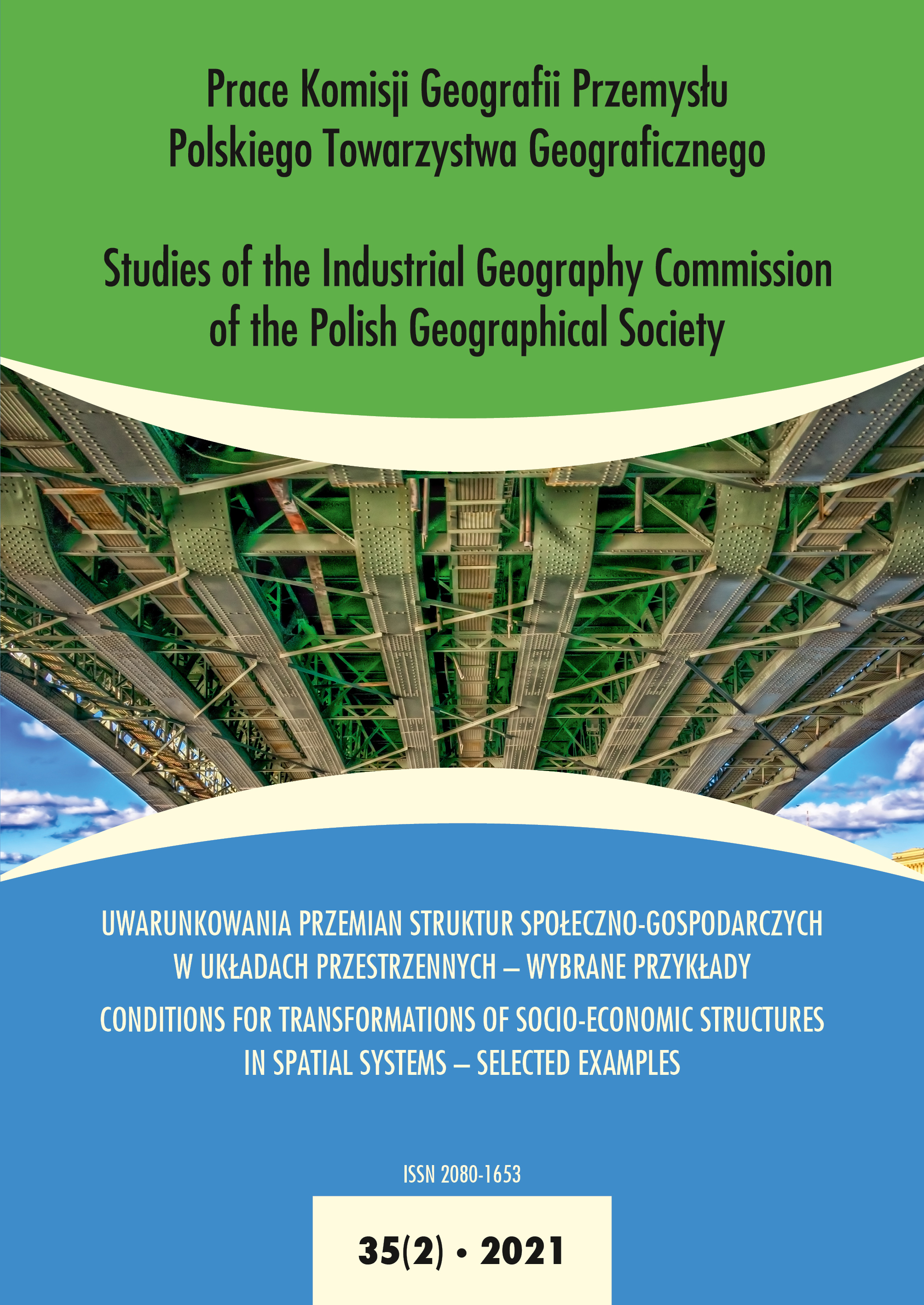Selected problems of the functioning of social economy entities in Poland
DOI:
https://doi.org/10.24917/20801653.352.9Keywords:
social economy, social economy entities, social entrepreneurship, social exclusionAbstract
The aim of this article was to present the essence of social economy through the prism of entities implementing this idea. The aim set in this way was determined by the layout of work. The discussion started with the presentation of the essence of social economy, the differences between the various types of social economy entities were shown, social entrepreneurship and its types were also referred to. A separate place was devoted to the evolution of social economy entities, since before World War II. In order to fully realize the goal, statistical data characterizing social economy entities in Poland, including the increase in their number and the state of employment were cited.
Downloads
Metrics
References
Ciepielewska-Kowalik, A., Pieliński, B., Starnawska, M., Szymańska, A. (2015). Social Enterprise in Poland. Institutional and Historical Context. ICSEM Working Papers, 11, Liège: The
International Comparative Social Enterprise Models (ICSEM) Project. Pozyskano z http://www.iap-socent.be/sites/default/files/Poland%20-%20Ciepielewska-Kowalik%20et%20al.pdf (dostęp 28.11.2020).
Departament Ekonomii Społecznej i Solidarnej. (2019). Ekonomia społeczna i solidarna, czyli po pierwsze człowiek. Pozyskano z https://www.ekonomiaspoleczna.gov.pl/
Ekonomia,Spoleczna,i,Solidarna,4016.html (dostęp 2.12.2020).
European Commission. (2020). Social enterprises and their ecosystems in Europe. Comparative synthesis report. Autorzy: C. Borzaga, G. Galera, B. Franchini, S. Chiomento, R. Nogales, C. Carini. Luxembourg: Publications Office of the European Union. Pozyskano z https://europa.eu/!Qq64ny
Herbst, J. (2008). Wstęp – pole przedsiębiorczości społecznej [w:] J. Dąbrowska (red.), Od trzeciego sektora do przedsiębiorczości społecznej – wyniki badań ekonomii społecznej w Polsce. Warszawa: Stowarzyszenie Klon/ Jawor, 7.
IPSOS. (2020). Global Trends 2020. Understanding Complexity. Pozyskano z https://www.ipsos.com/sites/default/files/ct/publication/documents/2020-02/ipsos-global-trends-2020-understanding-complexity.pdf
Hall, J., MacDonald, M. (2019). Participatory local governance and social enterprise. Exploring the links between social entrepreneurial behaviour and democratic resource allocation through participatory budgeting. Pozyskano z https://emes.net/content/uploads/ESCP-7EMES-06Hall-MacDonald.pdf (dostęp 11.03.2021).
Kiran, K.U. (2012). Opportunity and Challenges of Green Marketing with special references to Pune. International Journal of Management and Social Sciences Research, 1(1), 18–24.
Krajowy Program Rozwoju Ekonomii Społecznej do 2023 roku. Ekonomia Solidarności Społecznej. Załącznik do Uchwały nr 11 Rady Ministrów z dnia 31 stycznia 2019 r. Monitor Polski 2019, poz. 214. Pozyskano z http://isap.sejm.gov.pl/isap.nsf/download.xsp/WMP20190000214/O/M20190214.pdf
Neal, J. (2010). The Intentional Pursuit of the Ethical. The Faith-based Formation of the Next Generation of Christian Managers and Business Leaders. Mishawaka: Graduate Theological Foundation.
OECD. (2020, 30 lipca). Social economy and the COVID-19 crisis. Current and future roles. Pozyskano z http://www.oecd.org/coronavirus/policy-responses/social-economy-andthe-covid-19-crisis-current-and-future-roles-f904b89f/ (dostęp 11.03.2021).
Peredo, A.M., McLean, M. (2014). Przedsiębiorczość społeczna. Krytyczny przegląd koncepcji.Ekonomia Społeczna, 1, 77–89.
PMR. (2019). Handel detaliczny artykułami spożywczymi w Polsce 2019. Analiza rynku i prognozy rozwoju na lata 2019–2024.Podkarpacka Ekonomia Społeczna (2020, 1 grudnia). Podstawowe pojęcia. Pozyskano z http://es.rops.rzeszow.pl/podstawowe-pojecia/
Sektor non-profit w 2014 r. (2016). Warszawa: GUS.
Sektor non-profit w 2016 r. Stowarzyszenia, fundacje, społeczne podmioty wyznaniowe, samorząd gospodarczy i zawodowy. (2018). Kraków: GUS.
Sektor non-profit w 2018 r. (2020). Warszawa; Kraków: GUS.
Smith, B.R., Stevens, C.E. (2010). Different Types of Social Entrepreneurship. The Role of Geography and Embeddedness on the Measurement and Scaling of Social Value. Entrepreneurship &
Regional Development, 22(6).
Stowarzyszenia i podobne organizacje społeczne, fundacje oraz społeczne podmioty wyznaniowe prowadzące działalność gospodarczą w 2012 r. (2013). Warszawa: GUS.
Trzeci sektor w Polsce. Stowarzyszenia, fundacje, społeczne podmioty wyznaniowe, organizacje samorządu zawodowego, gospodarczego i pracodawców w 2012 r. (2014). Warszawa: GUS.
Zimmer, A., Hoemke, P., Pahl, B.J., Rentzsch, Ch. (red.). (2018). Resilient organizations in the third sector. Münster: Westfälische Wilhelms-Universität. Institut für Politikwissenschaft.
Downloads
Published
How to Cite
Issue
Section
License
Articles are published under the terms of the Creative Commons License (CC BY-ND 4.0; Attribution– NoDerivs).

